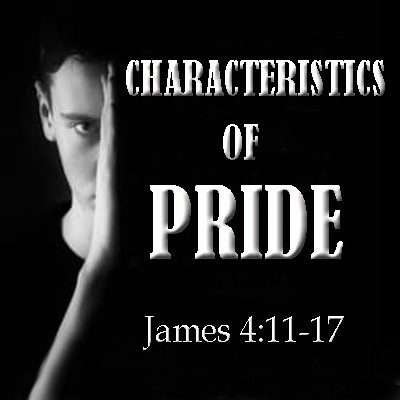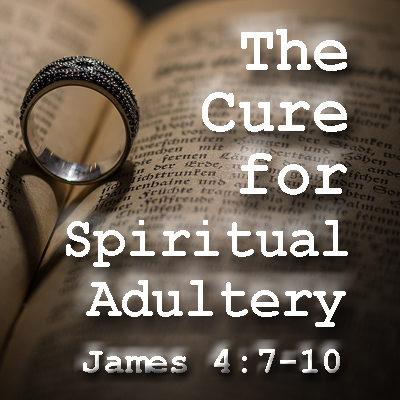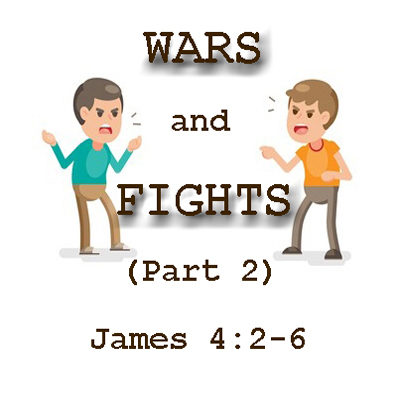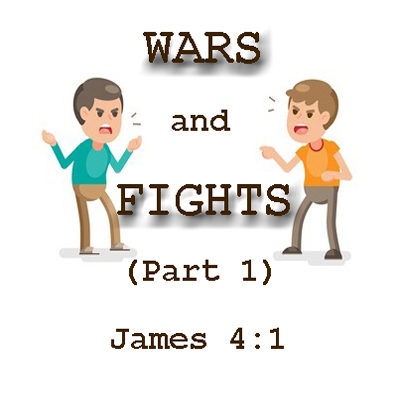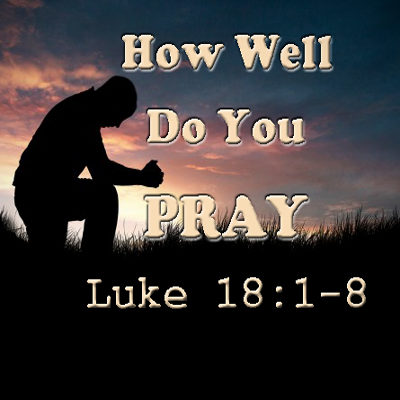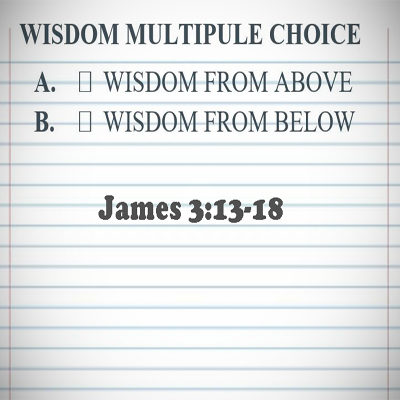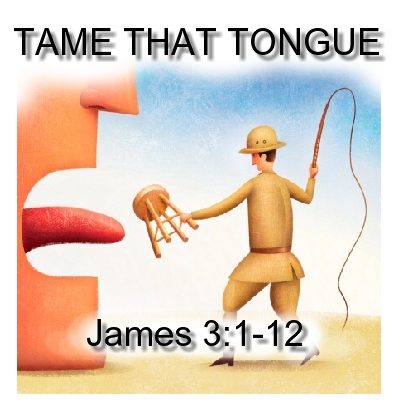Sermons by David Scarpino (Page 23)
salm 100 says, “Make a joyful shout to the Lord, [a]all you lands! 2 Serve the Lord with gladness; Come before His presence with singing.” (Psa.100:1-2). One of the greatest joys God’s people have is “speaking to one another in psalms and hymns and spiritual songs, singing and making melody in your heart to the Lord” (Eph. 5:19). When we ask “How Well Do You Sing”, the question is NOT do you have a good voice, it is not do you sing with perfect pitch? No rather the question is do you sing with understanding (Psa. 47:7; 1 Cor. 14:15)? Do you sing so that others may praise you or do you sing to praise God? In this lesson we continue examination of our own spiritual wellness with intent of growing in spirit and truth. David wrote, “I will bless the Lord at all times; His praise shall continually be in my mouth. 2 My soul shall make its boast in the Lord; The humble shall hear of it and be glad. 3 Oh, magnify the Lord with me, and let us exalt His name together.” (Psa. 34:1-3). Singing is something that Jesus did…
It should be obvious that pride is a destructive character attribute. John called it the “pride of life—is not of the Father but is of the world.” (1 John 2:16). Jesus told His disciples that what “comes out of a man, that defiles a man…from within, out of the heart of men”, and included pride concluding with verse 23, “All these evil things come from within and defile a man.” (Mark 7:20-23). In this lesson from James describes three characteristics of pride namely, Speaking Evil “of one another” and “the law”, 2. Putting yourself in the place of the Only One Lawgiver “Judge”, and 3. The Pride of Control. Once the child of God can recognize them they can expel them. James ends with, “Therefore, to him who knows to do good and does not do it, to him it is sin” (James 4:17).
What would you do? We are living through a pandemic called COVID-19 has caused, in our time, an unprecedented cost. No only to life but also to our way of life. What would you do to stop it. What would you pay for the cure? And let’s not focus only on COVID-19, what about cancer? How many people do you know that have died from cancer? What would you do, what would you be willing to do or pay to end cancer? What would you do to obtain the cure for cancer, for heart disease, for liver failure, kidney failure or dementia. All these are a result of sin, not my sin or your sin, but the sin that entered the world and caused death (Gen. 2:16-17), the expulsion from the garden (Gen 3:22-24) .
We cannot eliminate diseases, but here James will offer us 4 spiritual ways that Christians can take to eliminate spiritual adultery and eliminate spiritual death. “Therefore submit to God. . . “
In this second lesson from James 4 James continued in verse two to further explain why these members are at odds with one another. He said, “You lust and do not have. You murder and covet and cannot obtain. You fight and [b]war. . .” (James 4:2a). You lust, you murder? Is James saying that the early saints are murdering one another literally? Not at all. Just as he used strong language in verse one, he does so here. There are terrible consequences to the souls of others and our own when we lust and cannot have, when we war and fight with selfishness in our hearts. The truth is that when our focus is on self, others are often victims. Precious souls can be made to stumble when all we care about is self. Jesus warned against this kind of faith. . .
If we have Wars and Fights among us it is because we are Not Living According to the Spirit of Truth, because we don’t put others above ourselves—considering their needs—their situations—we just think about our needs. James says, that is not the way of truth, not the way of Godliness.
I want to emphasize the force behind the terms James chose. They should generate terror in your minds at the thought of discourse – at the thought of brethren fighting. Because James wants us to connect the dots…see the destructive power, the devastation that wars produce and connect that to ourselves and the devastation to us and the church that results from refusing to humble ourselves.
Our spiritual lives like our physical lives occasionally need examination. You see your doctor an he checks your temperature, your blood levels, your color, and weight amid a dozen other things to ascertain the condition of your overall well-being. Afterward the doctor may recommend medication, life-style changes or send you on your way with his stamp of approval. Spiritually, we also need regular examinations. The doctor is our Lord Jesus Christ and the examination is simply a comparison of your life, and the word of God. Areas where we are weak in the faith are shored-up by applying the teachings of God via the New Testament. One test of our spiritual well-being is our prayer life, or lack of. Not a complex lesson, but an important one for certain.
James has already spoken of wisdom in chapter 1 saying, “If any of you lacks wisdom, let him ask of God…” (v.1:5). The kind of wisdom that comes from God is from above and is “…first pure, then peaceable, gentle, willing to yield, full of mercy and good fruits, without partiality and without hypocrisy” (v.3:17) . But there is another kind of wisdom which “…is earthly, sensual, demonic” (v.3:15). Wisdom from God above—will result in righteousness and peace and wisdom from this world below—will result in confusion and every evil thing. Sometimes we get caught up applying the wisdom from this world because of vanity, selfishness, and too much concern over the opinions of others. James wants to teach us the differences and the consequences of both so that we may choose wisely to walk in the wisdom from above.
Do you fear death? Is your day filled with uncertainty, worry, or anxiety? Are you living day to day on a shaky foundation? Can you relate to the many souls on the RMS Titanic. Do you feel like “the ship is sinking” and there are no life boats left? Are you living without hope, does despair fill your whole being, do you feel that you don’t have control of the day? This is what it must have been like for the over 1,500 souls who lost their lives that day on April 15th, 1912. What is tragic about this is that people who live life day to day without hope, fear death, do not need to fear at at all.
Because is Christ all fear is gone, in Christ there is real hope! Jesus is the solid rock which all who obey will stand upon the firm and sure foundation. Living in Christ is the other side of anxiety, of worry and fear for the people of God have hope in the risen Christ and they are washed by His blood, members of His body, the church. These know that this life is just a vapor here today and gone tomorrow. These know that there is an eternal life after this life, and anxiously await it, saying to live is Christ and to die is gain (Phil. 1:21).
It is amazing how powerful the tongue really is. It can change the course of human events for good or for evil. It can make or destroy relationships. The tongue used properly can plant good seed to the saving of a soul, or it can prove out hypocrisy and cause a soul to shun the Lord we profess.
By it a good man can be ill spoken of and his reputation is destroyed. So small a member yet so powerful. “Even so the tongue is a little member and boasts great things” (James 3:5). James describes the “tongue is a fire, a world of [a]iniquity”, and says that “it defiles the whole body, and sets on fire the course of [b]nature; and it is set on fire by [c]hell” (James 3:6). So much power must be kept under control by the Spirit that God gives us so that we use it for the good and the glory of His kingdom.
Matt. 12:35 “A good man out of the good treasure of his heart brings forth good things, and an evil man out of the evil treasure brings forth evil things.” The words we speak can have an enormous impact on our family, friends, co-workers and our life. More, than that the words we speak can build up or destroy all the afore mentioned things. Even more important is the fact that our words can have a positive or negative effect on the church, the body of Christ. With just one sentence, one member can destroy the reputation of a local congregation. That’s power! We use our words in many different ways, and we will examine just a few in this lesson, some bad ways, and some good. We’ll start with people who use words in the irreverent ways…

